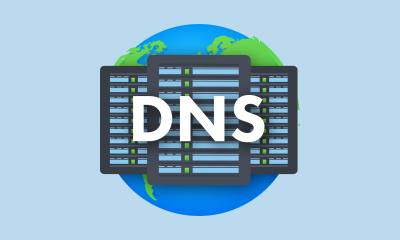DNS (Domain Name System) is a system that converts human-readable website names (such as www.example.com) into IP addresses that computers can understand. It serves as a sort of phone book for the internet, providing a mapping between domain names and IP addresses. Here are some of the key features of DNS:
- Name Resolution: DNS translates domain names into IP addresses, allowing users to access websites using easy-to-remember domain names instead of IP addresses.
- Load Balancing: DNS can be used to distribute incoming traffic across multiple servers, helping to balance the load and ensure that websites remain accessible even under high-traffic conditions.
- Failover: DNS can be configured to direct traffic to a secondary server in the event that the primary server is unavailable. This helps to ensure that websites remain accessible even if one of the servers goes down.
- Caching: DNS servers cache information about recent name resolutions, allowing them to respond more quickly to subsequent requests for the same domain name.
- Security: DNS has several security features, including DNSSEC (Domain Name System Security Extensions) which help to prevent unauthorized changes to the information stored in the DNS and protect against attacks such as cache poisoning.
- Geolocation: DNS can be used to direct traffic to different servers based on the geographic location of the user. This allows websites to provide a better user experience by directing users to the nearest server and reducing latency.
- Custom Records: DNS supports several types of custom records, including A, MX, and CNAME records, that allow administrators to configure their domains in a variety of ways to meet their specific needs.
What are Name Servers?
Name servers are the servers that hold the information about which IP addresses are associated with a particular domain name. They are responsible for directing traffic from the domain name to the correct IP address.
What is Canonical Name (CNAME)?
A CNAME (Canonical Name) is a type of DNS record that allows a domain name to be an alias for another domain. For example, if example.com has a CNAME record that points to example.net, then visiting example.com in a web browser will actually take you to example.net.
This can be useful for a number of reasons. For instance, if you have multiple websites or services that you want to be accessible under a single domain, you can use CNAME records to make them all accessible under one central domain name. Additionally, if you change the IP address of your website, you only need to update the CNAME record, rather than updating the IP address for each domain name that points to it.
In conclusion, DNS is a powerful and versatile technology that plays a critical role in how the internet functions. By enabling name resolution, load balancing, failover, caching, security, geolocation, and custom records, DNS helps ensure that websites are accessible, fast, and secure for users around the world.









